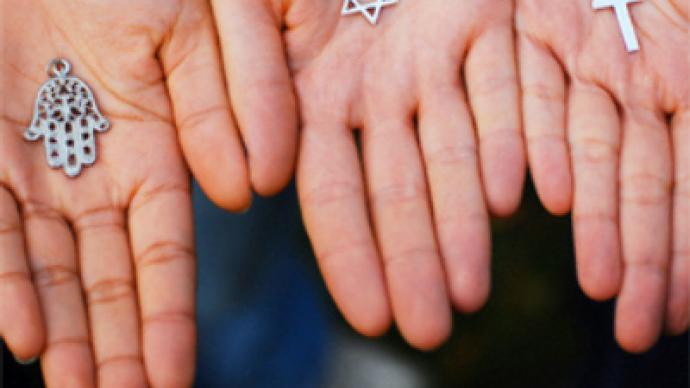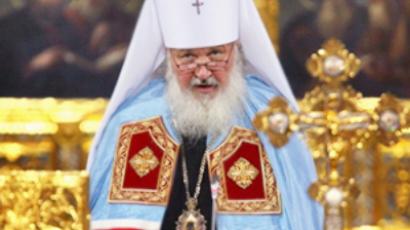Religion at school: to be or not to be?

The Ministry of Education and Science plans to ask teenage students which religion they would like to study at school, within the limits of the new educational program called “Spiritual-Moral Culture”.
Officials plan to put obligatory religious education on the school schedule.
Polling instructions were sent to Russia’s regions for a survey of teenage students and parents of children under 14. Officials plan to learn of their attitude towards religious education and their opinion on the basis of which religion they would prefer to study, says the head of state department of educational policy, Tatyana Petrova.
The results of this survey are expected to be compiled by the beginning of the next school year in September, 2009.
After the choice is made, the schools’ administration will decide how many spiritual classes in a week will be on the schedule and will prepare the list of schoolbooks to be used. “The Ministry of Education and Science will not impose the opinion on the advisability of introducing such subjects in schools”, the official stressed.
However, the Academician of the Russian Academy of Sciences, Yury Ryzhkov, thinks that “in the school environment this may lead to very serious conflicts”.
Students and parents will be allowed to choose from major religious groups in Russia.
The acting president of the Russian Academy of Education, David Feldshtein, said that “the approval of the educational standard is to be made by the Ministry of Education and Science according to the results of public discussion and professional experts’ consultations”.
Opinions split
The dispute over whether or not the Divine law will be studied at schools has split Russian society. The Russian Orthodox Church is trying its best to convince people that orthodox educational programs are necessary to children.
“During recent years we have been actively striving for a modification of the educational program in high schools that would allow us to attract the younger generation on the basics of a free choice of children and parents to spiritual, moral and to Orthodox cultural values”, the then metropolitan and present Patriarch of Moscow and all Russia, Kirill, said on January 27 at the Russian Orthodox Church Council.
In April, 2008 Mikhail Gelfand, the deputy head on scientific questions at the Institute of Information Transfer Problems, collected 1,500 signatures of PhDs and academics. They all signed an official letter to the Ministry of Education and Science expressing their opposition to the attempt to introduce orthodox education at schools and the state recognition of scientific degrees in theology. Scientists call this process an attempt by the Church to dominate social and public life.
The Russian Orthodox Church has suggested introducing a new educational program at the country’s schools, called “Spiritual-moral culture”, which was planned to include Basis of Orthodox Culture as a subject back in 2007.
The Council of Muftis, however, opposes introducing the new educational program developed by the Moscow Patriarchy.
“The concept of introducing this program presented by the Russian Orthodox Church again imposes divisions of children by their religions for studying spiritual-moral subjects”, says the deputy head of the Muftis Council of Russia.
Their opinion is that only a subject, “which tells about all traditional religions of the Russian people, and not just about one, let alone even the most widespread” should be studied in a state comprehensive school.













